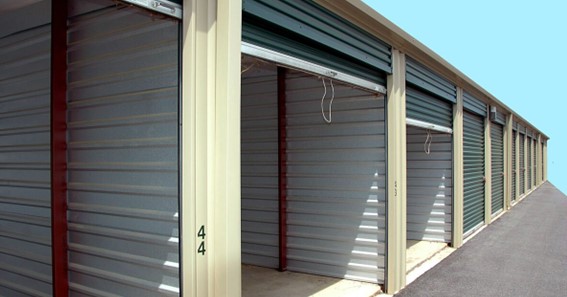Whether short-term or long-term, self-storage is an excellent option to store possessions during a transfer or spare a room in your home. Leasing a self-storage unit can be a convenient and straightforward solution to your demands.
Whether you’re running out of space in your current residence, planning on moving, or looking for a safe place to store those treasured possessions that you don’t want to lose but don’t need to see every day. Also, if you need office or warehouse space for a small business or other reasons, here are some crucial things to do and not do when filling storage units for optimal access and protection of items.
A Unit Close to Your Property is Convenient
Convenience is crucial in the realm of self-storage. A decent storage unit is one where going there isn’t a chore. One of the most critical elements to consider in terms of convenience is location – specifically, accessibility to your home and other pressing issues like the availability of self storage commercial insurance.
You will be significantly less likely to use your storage unit if you have to drive 45 minutes across town to get there. When you utilize it, you’ll discover that its awkward location is a significant time and energy drain. This must not happen. Locate a storage unit near your home or place of business to ensure easy access and regular use.
click here – Tips to Organize Full-Stack Developer’s Workplace
Keep an Inventory of Your Staff and Safeguard Them
Keep track of what’s in your storage unit on paper and your computer or smartphone. Keep it up to date as you add to or remove items. Some companies include a handy Photo Archive for every policy they write! In their picture vault, you can keep photos of your valuable items. This way, you’ll know exactly what’s in your storage container. Storage unit companies cover you with your images and receipts if you ever need to file a claim.
Label Your Boxes
Nothing is more frustrating than searching through your storage unit for hours, destroying your carefully stacked boxes and precisely matched rows of belongings, all in pursuit of a small item in a random box that you can’t seem to find. Sounds familiar, right? Perhaps not. Label your boxes to avoid this problem in the future– label all four sides, the top, and, if you’re feeling adventurous, the bottom.
The most important thing is to make your labels visible and readable. It’s also crucial to include a few descriptive phrases to describe the contents of each box. “For example, Kitchen” or “Kid’s Stuff” will not suffice. Want to improve your company’s efficiency even more? Number your boxes and use technology to discover things quickly.
Develop a thorough list of what objects go into which numbered boxes on your laptop. Open the document and search for the item by hitting “control F” or “command F” and typing the item’s name. The box number will appear in front of you in seconds.
Pack and Store Properly
Packing your belongings for self-storage necessitates the same level of care as transferring them into a new house. You’ll want to make sure they’re safe while in storage, and you’ll want to leave them packed to save time when you’re ready to remove them.
This may entail deconstructing a piece of furniture and returning it to its original packaging. To avoid scratching the legs of tables and chairs, wrap bubble wrap or other cushioning around them. Dressers and end tables with drawers provide additional storage space for smaller items. Flip your turntables on their side and place the tabletop side towards the wall to save space within your unit.
Lamps should be wrapped in a protective cloth after removing light bulbs and shades. Roll rugs up and place them on a shelf or in the corner of the unit upright. Smallgoods can be packaged and piled in inboxes. Knowing how to store your belongings correctly will help you make the most of your storage space.
click here – Benefits of living in a Paying guest facility in Koramangala
Do Not Store Perishable Goods
A storage unit isn’t designed to be a greenhouse, pantry, or refrigerator. Instead, any organic debris in a unit will rot over time, producing foul odors, dangerous mold and attracting rodents and pests. All of the factors mentioned earlier have the potential to damage your other stored things.
Canned and dried foods are exceptions, but you should double-check before storing them. If you get the green light, make sure they’re properly sealed and kept away from sharp items that could cause them to break open.
Avoid Flammable Items in a Storage Unit
When not in use, combustible materials should be stored in specific locations. One of those areas is not your storage unit. Do not keep explosive objects in your storage container, we emphasize. Even if your unit is climate-controlled, a power loss or other emergency can cause temperatures to rise and flammable materials catch fire. You’re playing with fire if you don’t have a climate-controlled unit. To protect your things and the property surrounding them, keep flammables out of your storage unit.
Observing these self-storage rules will allow you to have the most remarkable storage service possible and ensure that your possessions are maintained safe and in perfect shape until you’re ready to retrieve them.
To Know Some Great Stuff Do Visit CaresGuru
To Know Some Great Stuff Do Visit CrazzyCricket
To Know Some Great Stuff Do Visit CricFor

